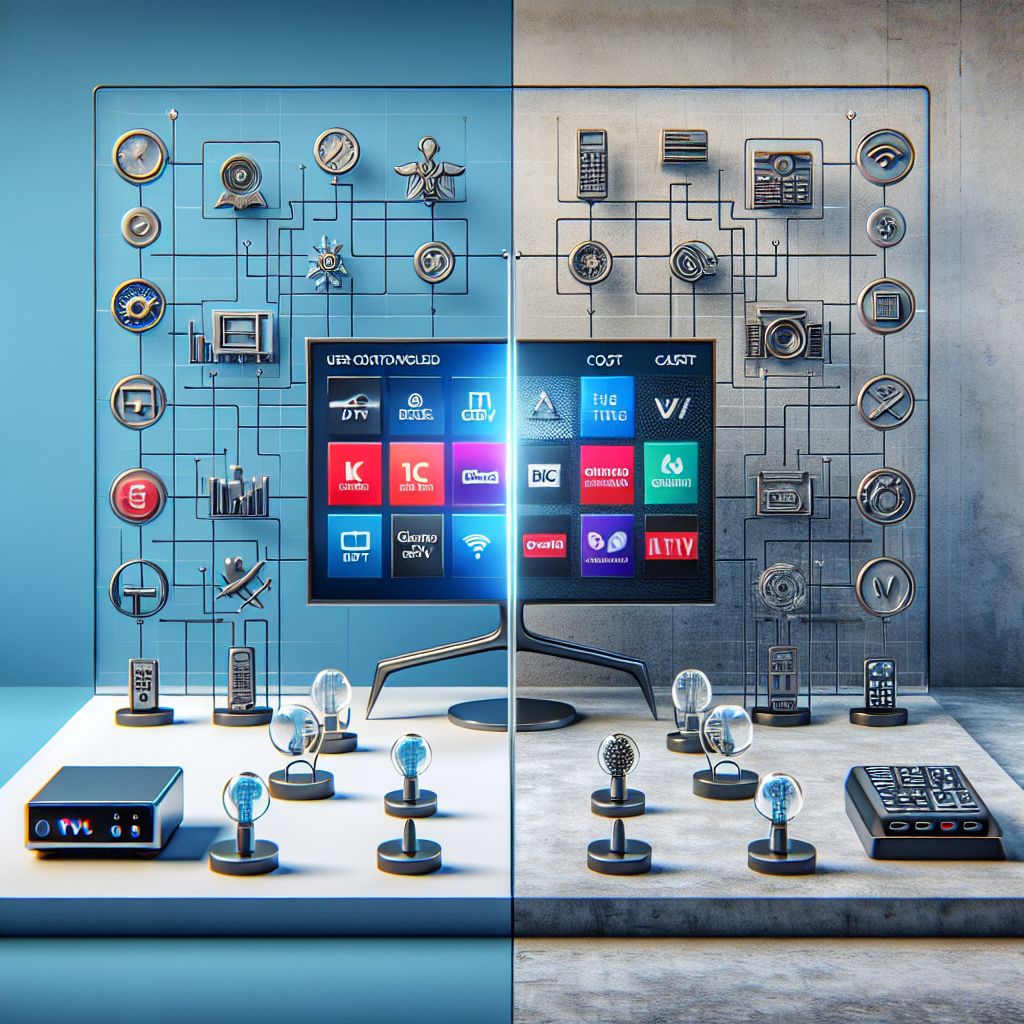Your cart is currently empty!
IPTV vs Traditional Cable: A Comparison of Services and Features

When it comes to choosing a television service provider, consumers have more options than ever before. Two popular choices are IPTV (Internet Protocol Television) and traditional cable. Both offer a wide range of channels and programming options, but there are some key differences between the two services. In this article, we will compare IPTV and traditional cable in terms of services and features to help you make an informed decision about which option is right for you.
One of the main differences between IPTV and traditional cable is the way in which the service is delivered. IPTV uses internet protocol technology to deliver television programming over the internet, while traditional cable uses coaxial cables to deliver programming to your television. This means that with IPTV, you can access your favorite shows and movies from anywhere with an internet connection, whereas with traditional cable, you are limited to watching programming on your television set.
Another key difference between IPTV and traditional cable is the variety of channels and programming options available. IPTV often offers a wider range of channels and on-demand content, including access to international channels and specialty programming that may not be available with traditional cable. Additionally, IPTV services often include features such as video on demand, DVR capabilities, and interactive features that enhance the viewing experience.
In terms of cost, IPTV and traditional cable services can vary widely depending on the provider and the package you choose. Generally, IPTV services tend to be more affordable than traditional cable, especially when you factor in additional features such as on-demand content and DVR capabilities. However, it is important to compare pricing and packages from different providers to find the best option for your budget and viewing preferences.
When it comes to reliability, both IPTV and traditional cable have their strengths and weaknesses. IPTV can be more susceptible to issues such as buffering and lagging if you have a slow internet connection, while traditional cable is typically more reliable in terms of signal quality. However, advances in technology have improved the reliability of IPTV services, making them a viable option for many consumers.
In conclusion, when comparing IPTV and traditional cable, it ultimately comes down to personal preference and what features are most important to you. IPTV offers a wider range of channels and programming options, as well as additional features such as on-demand content and DVR capabilities. Traditional cable may be more reliable in terms of signal quality, but can be more expensive and limited in terms of channel options. Ultimately, the best choice for you will depend on your budget, viewing preferences, and internet connectivity.

Leave a Reply